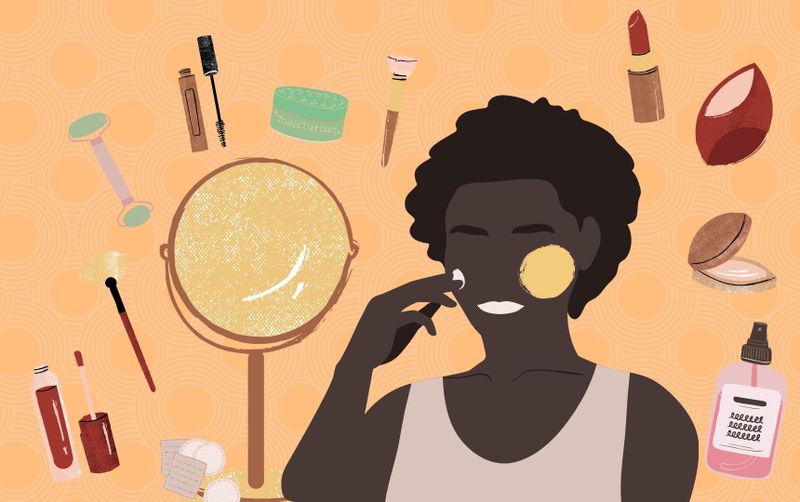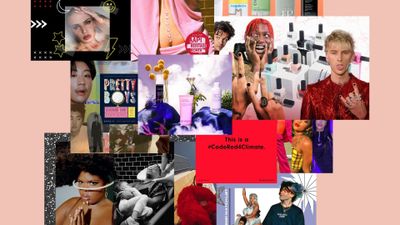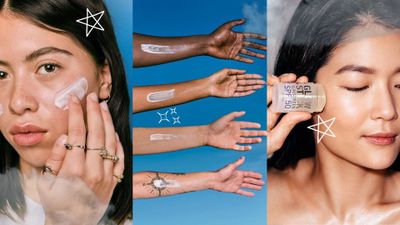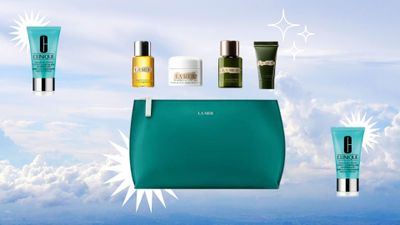In recent months, the Black Lives Matter movement has gained global traction and momentum.
With the NBA and other professional leagues protesting and workers at major publications calling out years of racism, self-reflection has been a big part of 2020.
The Black Lives Matter movement is about shining a light on the injustices brought upon Black people at the hands of police, but it also means so much more. Representation is a key component for change, and spending money at Black businesses is part of that change. This leads to money going into the Black community, and also giving us a chance to build generational wealth in ways we weren’t able to before because of the discriminating systems set in place in America.
SEE ALSO: How BTS is inspiring men to redefine masculinity and love themselves
Thankfully, we’ve been able to hold programs and companies accountable and see a shift in representation with initiatives like the 15% pledge. With Black people making up 15% of the United States population, the initiative is challenging businesses to pledge 15% of their shelves and inventory to products catering to Black people. With beauty products and marketing historically centered around catering to white women, up until recently, the industry has lacked even the smallest amount of diversity. One way consumers can make an impressionable impact is to decolonize their beauty routine.
Decolonization means to free from colonial status. In regards to your beauty routine, this means pledging to make a conscious change and effort in what kinds of products you buy and from whom, which includes doing your homework to support BIPOC businesses. This journey involves a lot of self-reflection and asking tough questions, and it may be uncomfortable at times, but it’s necessary to grow and evolve. It’s something you should demand of yourself and of any business you support with your dollar.
Very Good Light spoke with Khara Jabola Carolus, political activist and founder of the Instagram account @decolonizefeminism, to develop a step-by-step guide to decolonizing your skincare routine. Read our advice and best practices for making this necessary change below.
1. Lead with your identity rather than minimizing it.
“For a long time, I didn’t question the ideas I held,” Khara tells Very Good Light. “I started decolonizing when I was politically organized and started projecting my inside life as a Filipina outwardly rather than keeping it under an American mask.” Decolonizing begins with your identity, but it doesn’t stop there.
2. Ask questions.
“Asking questions about what might be shaping your choices, perception of self, and others,” Khara explains. “What pressures are you feeling and what ideas might be behind your choices, and where do they come from?”
The media plays a large role in how we view ourselves, but you shouldn’t feel pressure to fall victim to the high expectations and standards placed on you by these companies. “Centering yourself in your community, around people advancing the same narrative can help keep you motivated.”
3. Do your homework.
From Instagram to YouTube, brands spend millions marketing their products. Check these platforms to see how inclusive their marketing really is. Who are they featuring in their campaigns? What influencers are they partnering with? If they’re not paying BIPOC creators, you shouldn’t be paying them.
Another trick in our book is LinkedIn. While it’s known as a platform for networking and finding jobs, you can also use LinkedIn to get an inside look at the people that work for a brand. Are their corporate teams as diverse as their marketing? Does this brand hire BIPOC, not just as models, but at the corporate and C-suite level?
4. Don’t just talk the talk. Walk the walk.
While sharing a resource or post you’ve found can be important in spreading awareness for BIPOC issues, you can’t truly decolonize your skincare routine without actually putting all this research to use. Recenter and focus on what brands you purchase from. Phase out brands and products that don’t align with this standard. This isn’t an overnight action, it is a day-to-day effort. Shift your dollars away from corporations that lack BIPOC in their marketing and at the corporate table, and into BIPOC-owned companies.
5. Don’t stop at your beauty routine.
Decolonization is not just an action, it is an ongoing mindset that includes a lot of self-reflection and learning. Decolonizing your beauty cabinet is not just tossing out products from companies that lack representation and inclusive products. Begin to use the practices you’ve learned on this journey of decolonizing your skincare routine to other facets of your life–from how you subconsciously think to even the coffee you drink.
“Personalizing capitalism doesn’t make it not capitalism,” Khara express. “Decolonization is hard, requires sacrifices, and is not a one-time event.”
While it can be a difficult and oftentimes uncomfortable road ahead, decolonization can’t just be a trend. We as consumers hold the power to keep companies accountable now and in the future in order to see a real change.






